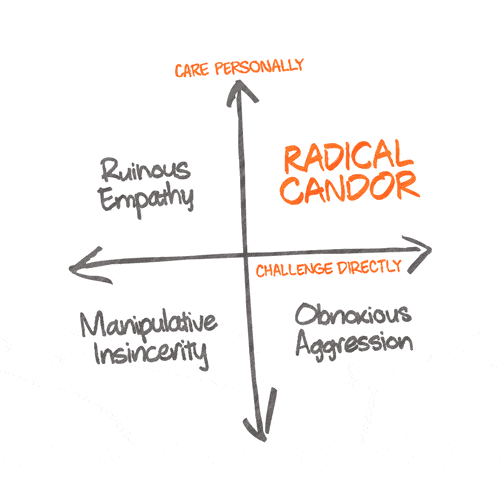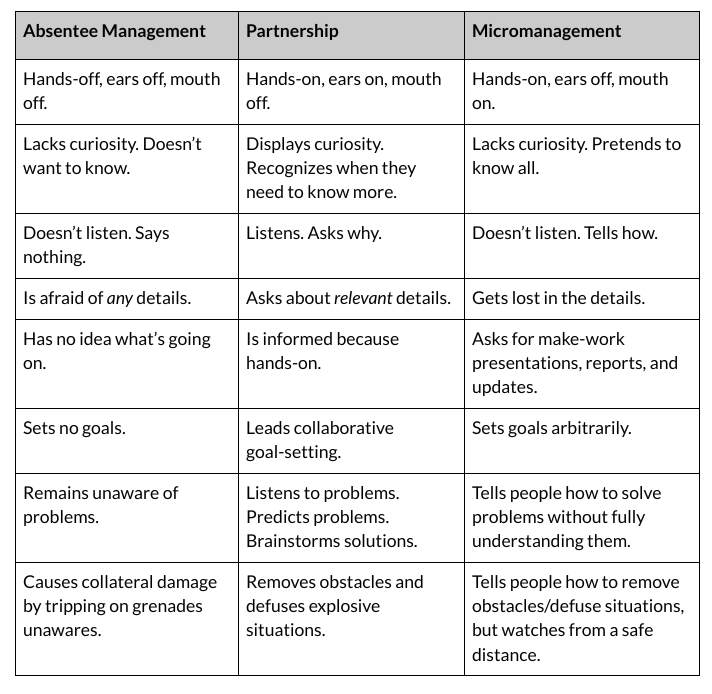I really like the use of this 4 quadrant chart to illustrate what is radical candor, which is to challenge directly with the intention of caring personally.

The non-confrontational culture of Asian often leads to a team trying to be courteous to each other, maintaining some kind of fake harmony. At the other extreme, there are also people proclaiming they are being brutally honest, giving out harsh feedback to others pretending to be the next Steve jobs incarnated. Either end wouldn’t lead to the growth of the team nor the individual.
While the book explains succinctly the need to care personally and challenge directly, what’s more interesting for me is the practical tips on how to encourage radical candor in the team. Here are just some of them,
This could be old school but still useful. Praise in public, criticize in private. The caveat is if you are the boss, then, you are an exception for the criticize in private rule, first, you really want to set an example so people dare to give honest feedback. Second, mainly for the economy of scale, criticism that’s already been highlighted by someone in a team meeting, would unlikely be highlighted by someone else again. Thus save a leader precious time.
Be comfortable with silence. Don’t fill up your own questions if there’s no feedback immediately. Throw the question out, keep the eyes contact with the receiving party, pause for 6 seconds.
The radical candor framework can actually be used as a rating tool. Get others to rate you on how they feel about your feedback, is it ruinous empathy, manipulative insincerity or radical candor? Remember that your words should not be measured by your mouth, but the ears of the recipient of those words.
When giving feedback, try to follow the approach of citing the situation, behavior, and impact. Example, “During the meeting just now, you seems uncertain about the content of your slides, and having long pause during presentation. That made the audience lost interest as well as confidence in your data.”
Don’t wait until weekly, monthly or worst, year-end to feedback. Feedback should be immediate.
Since feedback should be immediate, a lot of this feedback should happen in a short 3-5 minutes time right after meeting. So keep slack between meetings, so you have that buffer to give those feedbacks.
Dream, getting to know the dream of your subordinates, what are their dream job? and how to align their dream with what’s can be offered by the current job? This could be a challenge for a lot of bosses, as most of them would be thinking, this conversation wouldn’t lead to any positive outcome. I think design your life could be a useful tool for this conversation. It encourages experiment to purposefully discover life, but not abandoning whatever one doing right away to go all-in for passion.
